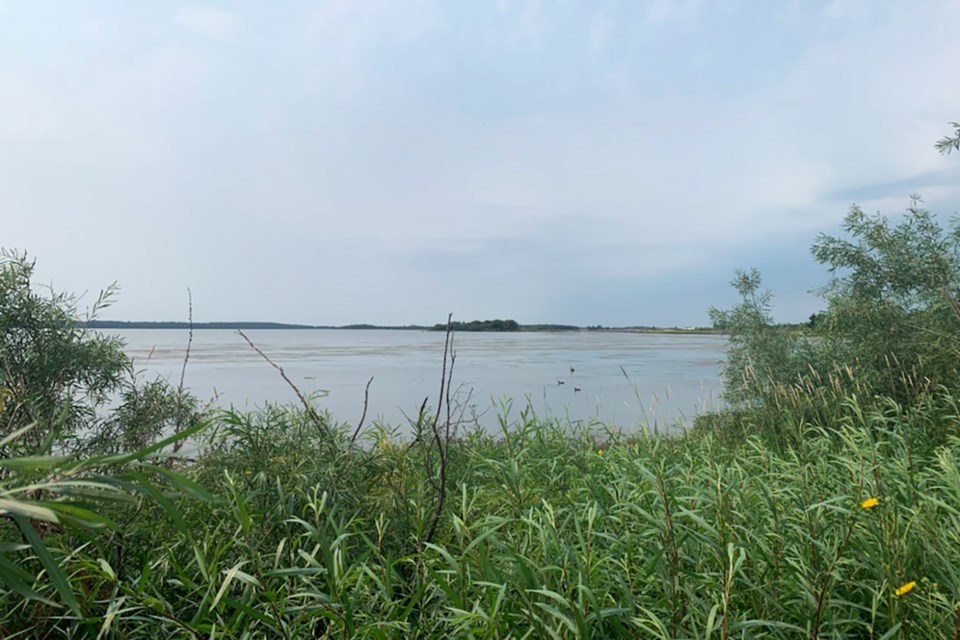ST. PAUL - The next steps to restoring traditional names for the two lakes located near St. Paul known as Upper and Lower Therien have been taken, with both County of St. Paul and the Town of St. Paul receiving letters from the Alberta Geographical Names Program with the Government of Alberta.
In July of 2021, the Town of St. Paul decided to seek more information regarding the proposal to restore the lakes to their traditional name, which is Manâwânis Lake. Jim White, president of the Mannawanis Native Friendship Centre, along with Tanya Fontaine Porozni, spoke with council at that time about the proposal.
The name traditional was already in historical records, recorded in about 1904, according to information presented about a year ago. The lakes currently known as Upper and Lower Thérien were once used by Indigenous people as a place to gather duck eggs in the spring.
The recent request from the Government of Alberta is for municipalities to reply with their position on the proposed name change from Upper and Lower Therien Lakes to Upper and Lower Manâwânis Lakes.
"It is important to note that the name Manâwânis is understood to be a traditional Cree name for the lake. The naming proposal is to restore the name Manâwânis to both water features as Upper Manâwânis Lake and Lower Manâwânis Lake as an act of reconciliation in the community of St. Paul," reads the Town of St. Paul's May 24 agenda.
According to the letter from the Alberta Geographical Names Program, "The current names of the lakes commemorate Father Adéodat Thérien, OMI, who was responsible for sponsoring and overseeing a settlement, known as St. Paul des Métis, which was established to aid in transitioning Métis to agricultural settlement. Father Thérien later sponsored non-Métis French-speaking people to settle in the area, often on lands already occupied by previous settled Métis families."
The letter further states, "The Order of Mary Immaculate (the Oblates), of which Father Thérien was a member, has already indicated their support for the renaming proposal."
Under Section 18 of the Historical Resources Act, the naming of geographical features in the province is the responsibility of the Minister of Culture and Status of Women.
"The Alberta Geographical Names Program reviews all naming proposals before a decision is made. As part of that review process, the opinions and comments of the municipalities associated with the geographical feature are an important part of the evaluation process," reads the letter.
The letter sent to the Town and County of St. Paul was also sent to a number of First Nations communities, Métis Settlements and the Métis Nation of Alberta.
During Town of St. Paul council discussions, it was noted that only Upper Therien Lake actually touches the Town of St. Paul, and that both lakes fall within the boundaries of the County of St. Paul.
Town of St. Paul Mayor Maureen Miller noted that when the topic came before council last year, the decision was to wait for the province to take action, since lake names fall within provincial jurisdiction.
Miller voiced her support last Monday, in favour of restoring the lake names.
"I would definitely speak in support of this," said the mayor.
A motion to to write a letter to the province showing the support from the Town of St. Paul in the re-naming of Upper and Lower Therien Lakes as an act of reconciliation, was carried by council.
County of St. Paul does not support request
The County of St. Paul council spent some time deliberating the proposed renaming of Lower and Upper Therien Lakes to Upper and Lower Mannawanis Lakes before voting against lending their support to such a move at last Tuesday’s Public Works meeting.
“Our community is changing,” Coun. Maxine Fodness said in speaking to the proposal. “We see different people, groups moving in, and I think we need to embrace that change and I think we need to move forward as a community and I don’t think changing a name back to what it used to be will heal the hurt. I think the hurt will only heal through forgiveness and that comes through the heart.”
Fodness said she was aware that when the discussion around the proposed name change first surfaced there were “a few people in the area that were not really happy with this.”
Coun. Ross Krekoski said he personally supported changing the name, saying the need for reconciliation is a result of groups of people with disparate views of history. However, he said he couldn’t speak for everyone in his division on the issue.
“Because the way we conceptualize history affects the way we see ourselves in relation to the community around us and the places around us. I disagree that it’s about changing history because the rift already exists.”
Krekoski also suggested to his fellow councillors that “it’s possibly antagonistic towards our neighbours if we come out in opposition of it,” adding he found it interesting that within the letter from the provincial government seeking council’s input, the Oblates, of which Father Adeodat Therien was a member, indicate their support of the change.
Coun. Dale Hedrick questioned what the financial implications were of renaming the lakes in terms of maps and signage and who would be on the hook for it.
“It’s going to take years to get everything changed,” he said.
Reeve Glen Ockerman said he too was interested in what the associated costs would be, but CAO Sheila Kitz noted that it would fall under provincial jurisdiction.
“I’m sort of neutral on it, too,” the Reeve stated. “But I know what everybody probably in the last 100 years has known it as Upper and Lower Therien Lake, just like Moose Hills Road where I live on,” Ockerman said. “It wasn’t always Moose Hills Road.”
Hedrick’s motion not to support the renaming of the lakes was carried by council.



